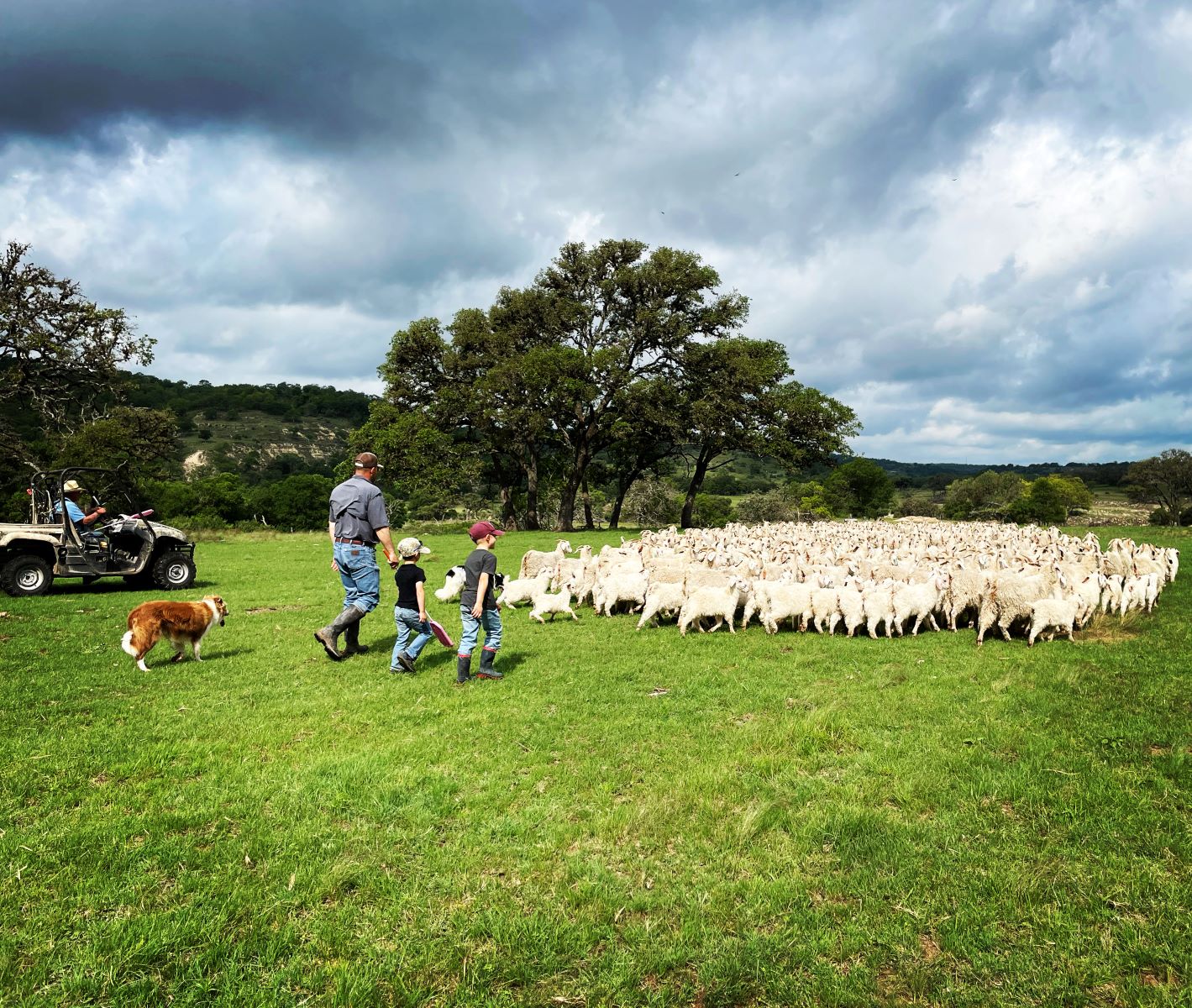On May 27th, Congressman Chip Roy visited Hillingdon. Other farmers & ranchers around the area also joined us. We appreciate Congressman Roy giving farmers & ranchers the opportunity to visit one on one with him about important issues affecting us.




The past couple of months at Hillingdon have been filled with working all three classes of our livestock.
Due to the plentiful rainfall we have received this year, this created an ideal environment for stomach worms in sheep & goats. A severe infection of stomach worms {Haemonchus contortus} causes anemia, reduced animal production, & possibly death.
At the end of May, we began gathering nannies & kids from the fields. We drenched & gave copper boluses {COWP}* to the nannies & kids, as well as vaccinated the kids with Clostridium perfringens types C&D & Clostridium tetani. Nannies were vaccinated with the same vaccine when they were pregnant, so the kids received it then as well.
*Due to the presence of anthelmintic, or dewormer {drench}, resistance, alternative methods of control are necessary. Copper Oxide Wire Particles {COWP} have been shown to reduce infection of H. contortus. These tiny metal particles are a slow release from of copper that can be administered in a gel capsule. The capsule passes through the rumen & lodges in the abomasum {true stomach} where the H. contortus resides. COWP appears to cause damage to the adult worm, but does not affect immature larvae {which can also feed on blood from the animal}. source: https://www.wormx.info/cowp2014
Nannies & kids were then all turned into one pasture where they had more room to graze. We had them confined to fields close by so we could keep a closer eye on predators. The kids are now big enough to travel better & stay with their mothers in large, open areas. Our livestock guardian dogs had been moving around to the different fields checking on the nannies & kids, so they were moved into this same pasture.














Sheep were worked & lambs were weaned in June. Ewes were drenched & given copper boluses. Lambs were ear tagged, drenched, had a tissue sample taken from their ear {to determine parentage}, & were vaccinated with Clostridium perfringens types C&D & Clostridium tetani.
Lambs were then put in a field where they can graze, as well as learn to eat a prepared ration from a feeder. The majority of ewes went back into pastures. Our super twinner ewes {scanned as carrying twins for 3, 4 or 5 years} were put in the field with the lambs. Having some ewes with the lambs helps lambs to stay calmer & allows the lambs to learn from the ewes on how to eat a prepared ration.










At about four months of age, it is important that calves are ‘worked’. This includes vaccinating, ear tagging, treating for internal & external parasites, & castrating most bull calves. Cows & bulls also receive a round of vaccinations at this time. We spent June & the first half of July working herds of cattle.
A vaccination program is important in building a healthy immune system to fight diseases. Ear tags provide proof of ownership, as well as associate a specific calf to its dam. Treatment for internal & external parasites is done through a pour on solution across the back. Eye appeal & temperament are the biggest factors when deciding which bulls to keep & which to castrate. Castration reduces aggressiveness & sexual activity by lowering testosterone levels. It also creates a higher quality carcass-more consistent, marbled, & tender beef. Steers are typically much easier to handle.


















The 106th Annual Convention of the Texas Sheep & Goat Raiser’s Association was held in mid-July in Kerrville. Educational presentation, speakers, & social time with other ranchers were a part of the event.
The highlight of this year’s convention was when Robin was awarded the Fred T Earwood Memorial Award. The Earwood Award is the Texas Sheep and Goat Raisers’ Association’s most prestigious & coveted award. It was established by the family and friends of the late Fred Earwood of Sonora in 1969 to honor those whose loyalty and dedication to the sheep & goat industry exemplify land & livestock values.
The following bio was read at the awards luncheon…
Robin is a third-generation rancher from Kendall County. His family ranch has been in operation for 134 years. Robin raises Angora goats, Finewool sheep, & Angus cattle. The pressure that Robin puts on selecting his animals has allowed him to sell quality breeding stock from all three classes of livestock throughout his career.
Robin has always exhibited optimism & enthusiasm for the ranching industry. He has never hesitated to speak his mind when input is needed. Robin openly shares his own challenges, along with successes, in hopes that others can succeed in ranching.
Coaching 4-H kids in range & wool & mohair has always been a passion of his, with over 35 years of volunteer service.
Keeping his family’s ranch together for future generations has always been the forefront in all his efforts, while encouraging others to do the same.
We couldn’t be more proud of Robin & are very thankful he was recognized for his loyalty & dedication to the sheep & goat industry.




